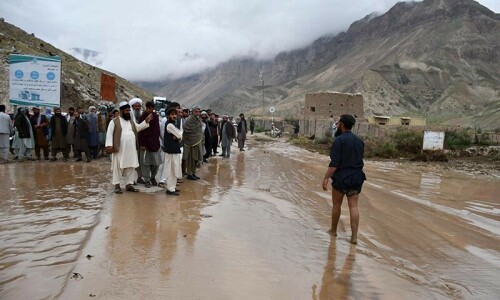INTO a thicket the Supreme Court has stepped again, and again with uncertain consequences. The Reko Diq deal has been struck down: a 1993 agreement signed under a caretaker government in Balochistan with an Australian mining company, which eventually fell into the hands of its present-day owners, Canadian- based Barrick Gold and Chile’s Antofagasta. At stake are copper and gold reserves that run apparently into tens of billions of dollars. Set aside the legal minutiae and two central issues are at stake here. One, will striking down a 20-year-old contract deliver a devastating blow to foreign investment, particularly in the mining and exploration sectors, in Pakistan? Two, are the mineral reserves of the country, essentially belonging to the people, to be sold off for a song just because the people do not have representatives in government with their best interest at heart? Lying between those two interests — often at odds with one another — is a third question: was the Reko Diq deal fair when assessed alongside similar contracts internationally and given the particular conditions of Balochistan?
To the last question first: privately, virtually all parties to the Reko Diq hearing in the Supreme Court suggest that the contract was not inherently unfair. Having spent $400m on exploration during various phases of ownership over the years, Tethyan Copper Company discovered that there are indeed vast sums of copper and gold to be mined in Reko Diq — with the Balochistan government not having spent a rupee of its own through the life of the project. Could, and should, the Balochistan government have pressed for a better deal than a small amount of royalties, a 25 per cent share of the project and sundry taxes to be imposed? Yes. But was the deal so outlandish that the companies involved should have known at the outset the danger of it being struck down? No.
Therein lies the difficulty with the Supreme Court judgment. Say a government in Balochistan today were to sign a mining lease on lucrative terms in unfavourable conditions: the government doesn’t have the money to even partially finance mega-investment projects; security conditions in the province are a concern for even the hardiest investor; and the medium-term outlook of the Pakistani economy is quite poor. Should the granting of lucrative terms to an investor today, reflecting present security and economic conditions, be struck down 20 years later if conditions at that future time render them ‘too generous’? The silver lining in Reko Diq is that investors are keen to begin mining — meaning the devastating impact on privatisation of the Steel Mills judgment is unlikely to be repeated in the mining sector.










































